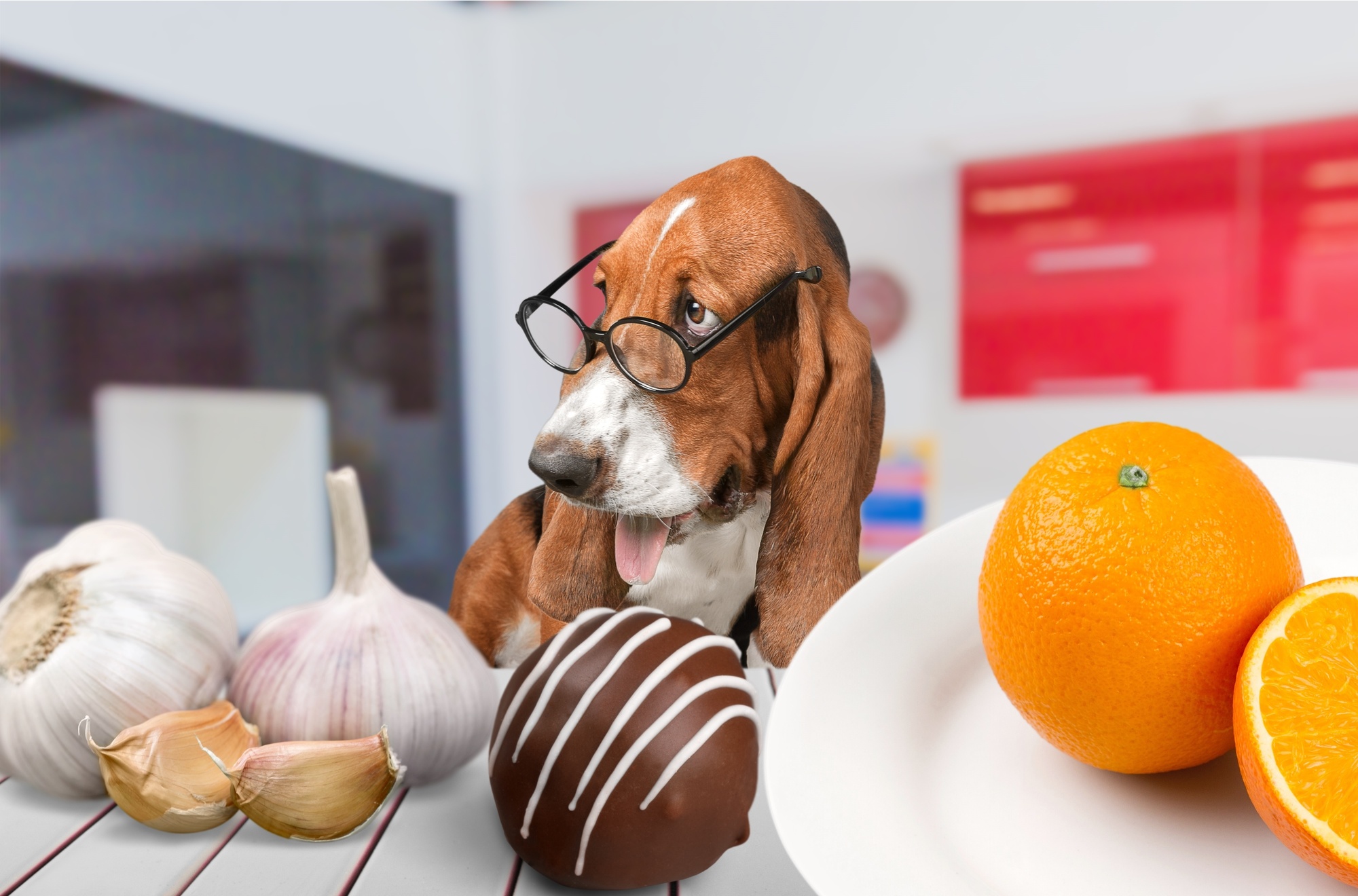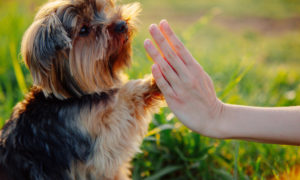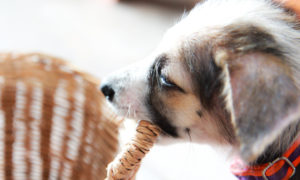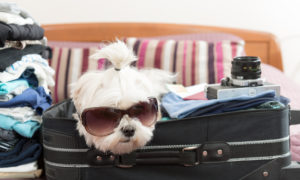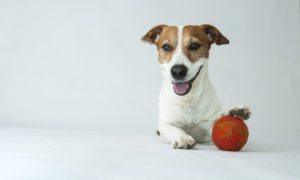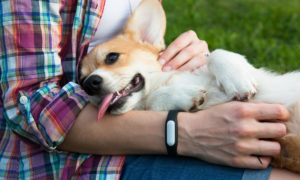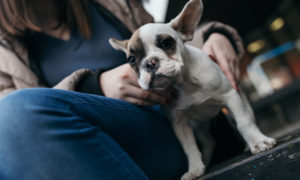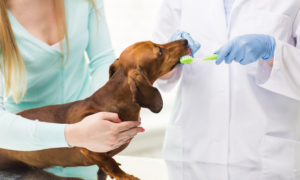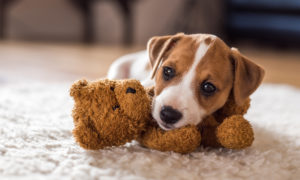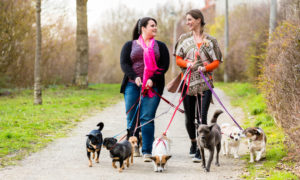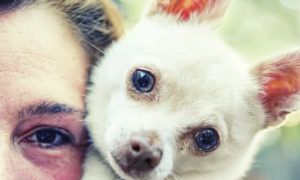If you have a small dog, then you know that they’ll eat anything: food, trash, sticks, bugs, or anything else they can find.
It might be hard to resist those big brown eyes at the dinner table, but letting your dogs get into certain foods could hurt them. There are a lot of foods dogs should not eat, and it’s not only about gaining weight.
Some foods are toxic for dogs–even some of the common items you might have in your cupboard.
You probably already know about the basics–like not feeding your dog chocolate–but some snacks that seem safe could make your pet sick. The more they eat, the worse it could get.
To keep your small dog safe and healthy (and to save yourself a lot of money in potential vet bills) be sure to keep these eight human foods out of reach of your dog at all times.
8 Human Foods Dogs Should Not Eat
Before you decide to add a little extra to your small dog’s diet, you need to know some of the basics of what you can and can’t feed them.
It might surprise you to know which human treats that are toxic foods for dogs. Here’s a list of foods to keep in mind.
1. Xylitol
This sweetener is in a lot of different foods, including candy, gum, toothpaste, and other baked goods. It’s also commonly found in certain brands of peanut butter, which is a treat given to dogs of all kinds.
Xylitol can cause your small dog’s blood sugar to drop. You might notice vomiting, sluggishness, and difficulty walking or coordinating. Eventually, it can lead to seizures, liver failure, and death.
This is especially crucial for dogs that are 50 pounds or less, as even a small amount of a food with xylitol in it can cause severe damage.
2. Grapes
Grapes, or anything derived from grapes like raisins or grape juice, should be off limits for your pet. Grapes affect dogs of any size or breed. Although the exact substance that causes this reaction isn’t known, consuming small amounts of grapes or raisins could be fatal for a dog.
It can cause vomiting, diarrhea, seizures, and acute kidney failure. It doesn’t affect all dogs, but there’s no way of telling which dogs will be in danger. So it’s best to keep these out of the mouth of your small dog.
3. Yeast
You might know yeast as the product that you put in your dough to get your bread to rise. If your dog eats yeast or dough with yeast in it, it could cause the dough to expand inside your dog’s stomach.
A small amount will cause gas, indigestion, and discomfort. But a large amount of yeast dough, especially with a smaller dog, could cause the stomach and intestines to rupture.
4. Onions
Onions are a common household food item: chopped, diced, fried, or powdered. While consuming onions might not be immediately toxic, the disulfides and sulfoxides in onions can damage the red blood cells in dogs. Over time, severe illnesses like anemia might develop, which can be fatal.
Always read the label of any foods before you give them to your dog. Onion powder or other extracts can be in many forms of processed foods.
5. Avocado
Whether avocados are safe to consume depends from dog to dog. Avocados contain persin, which your dog may or may not be allergic too. Either way, too much can cause vomiting or diarrhea in dogs.
Persin is in every part of the avocado plant, including the leaves, seed, bark, and fruit. Also keep your dog away from the avocado seed, as it can become caught in the intestines. This kind of obstruction could end up being fatal.
6. Fruit with Pits
Avoid giving your small dog any fruits with pits in them, like plums, peaches, or persimmons. While humans know not to eat the pit, dogs don’t have that same understanding. They’ll eat the fruit, pit, and all–which could end up causing problems in the digestive process. Seeds can block the intestines and cause more serious health problems down the line.
Certain pits, like peaches and plums, have cyanide in them, which is poisonous to dogs as well as humans.
7. Macadamia Nuts
While these nuts can make a tasty snack for people, they’re not so healthy for your dog. Whether you’re eating them plain or baked into something like a cookie, keep them out of your dog’s reach.
They contain a toxin that can cause weakness in the back legs, vomiting, tremors, and loss of coordination. Eventually, they can lead to death.
8. Caffeine
You should think twice before you let your dog lap up the coffee spilled on the kitchen floor. Caffeine in drinks like coffee can cause a long list of problems for your dog. These include vomiting, diarrhea, abnormal heartbeat, tremors, and seizures.
Beyond beverages, caffeine is in other common household foods. Keep an eye on any products like chocolate, soft drinks, energy drinks, and tea.
The Bottom Line
The next time your dog breaks into the pantry or you think about giving them a little treat from the dinner table, remember this list of foods dogs should not eat.
You’ll always want to keep your pup away from these foods. But no matter how careful you are, your dog might get hold of something they shouldn’t.
Always keep the number of your local vet on hand, as well as the ASPCA Animal Poison Control Center. If your dog has eaten something toxic, call for emergency help right away.
Looking for more tips and tricks on keeping your small dog safe and healthy? Check out our blog for more!

